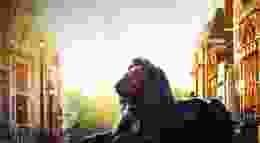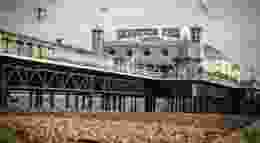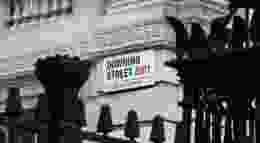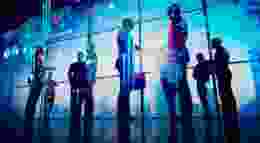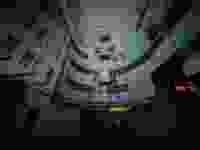
BBC World News shames our nation
BBC bias is a national shame. Without an influx of open minds, BBC World News will continue to broadcast news in a biased way for years to come, says Rory Broomfield.
It's nearing a week since the death of the brutal dictator Fidel Castro in Cuba and, frankly, the response of the Left in British politics has been shameful.
This was mentioned in an excellent article by William Walter earlier this week; however, what adds to the worry is that the Left still retain a key tool in its propaganda projections: the BBC.
Sat in my hotel room last week, I watched the BBC's World News coverage of Castro's death, Brexit, US President-elect Trump's nominees for key roles and other issues besides. I found it deeply frustrating. Time after time they had the same sort of talking heads on – the so called "experts" from the so called "liberal elite" – who constantly peddled a leftist agenda without any desire to give balance. They were being paraded onto show after show and going unchallenged by the presenters hosting the programmes. One guest, another "expert" from the LSE, in her interview tried to justify Castro's human rights record by saying that he wasn't as bad as the previous regime – despite Castro's horrific record itself. Was she challenged by the presenter on the premise that two wrongs don't make a right? Maybe the presenter said that just because others have been brutal and murderous it doesn't mean that Castro had to be? Did the presenter do anything?! Did they heck!
Unfortunately, this was a common occurrence throughout the programming. It was also exhibited by reports from journalists "in the field" (well, in places like Washington, New York and Miami…) where they covered issues in a typically selective way. For instance, when describing the President-elect's nominee for the US Ambassador to the UN, the best the BBC could describe Nikki Haley as is "not as bad as the other possibilities" (presumably meaning someone like Jon Bolton, who the BBC would hate to see back in a position of power). In doing so, the reporter illustrated biases that is evident throughout the channel. Even when talking about something non-political, presenters couldn't stop themselves from forming a narrative of praise for a leftist political agenda – even ones like Castro's Cuba. Such an example was when one journalist was looking at the restoration of the El Capitol building in Havana – heaping praise on it for the initiative. Did he mention the poverty that surrounds the building though? Maybe he highlighted that Cuba is ploughing money into a project costing £100 million, despite a poverty-stricken economy where the average wage of a worker is roughly $20 a month? Nope!
Finally, on Dateline London with Gavin Esler, there was a roundtable of Europhiles talking about, guess what, what a disaster Brexit is going to be. And all this broadcast on a television channel that has an estimated 76 million viewers per week. The programme – and the entire channel – gives the UK a bad name; it does the UK down and is an obvious play-thing for BBC staff who want to project their bias globally.
The crazy thing is that the BBC World News is funded by subscription and advertising revenue. Not by the BBC licence fee (TV tax). It shows that without the relic and anachronism that is the TV tax, programming can still survive and thrive (as if ITV, Channel 4 or Sky didn't prove that already). However, it also shows that when the BBC licence fee is phased out in the future – and I predict that it will happen one day – there needs to be more (substantially more) emphasis on encouraging non-biased lefties to join as presenters and reporters.
Without an influx of new open minds, the BBC World News will be broadcasting news in a biased way for years to come. Those that want to see the BBC report in a balanced and credible way (rather than those on the left that want to see it as their chance to "influence the world") should sign up. If we don't have new people involved in the programme making, what's projected is an unaccountable and unrepresentative view for the rest of the world to see. We should do better.

